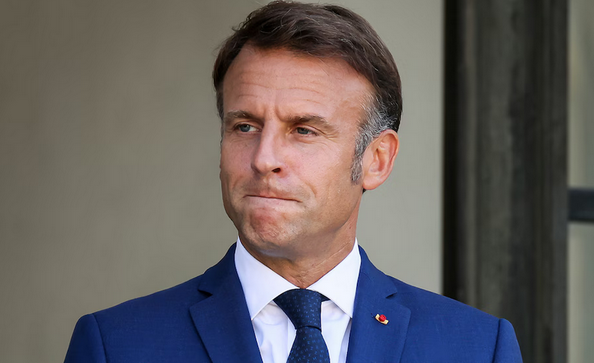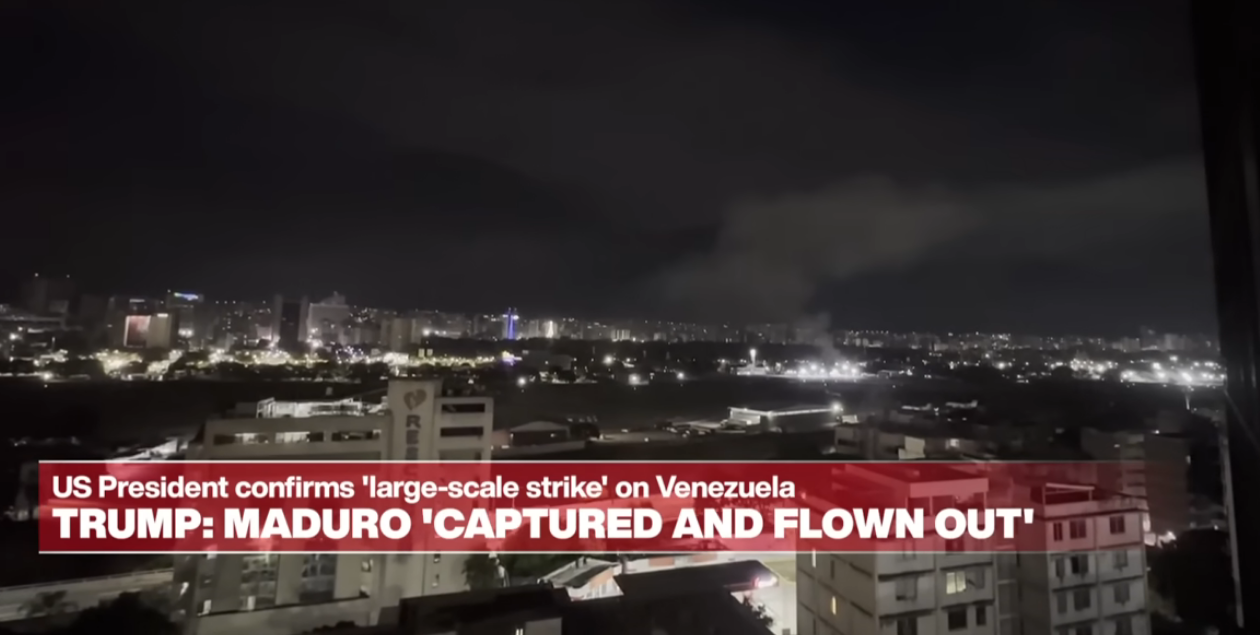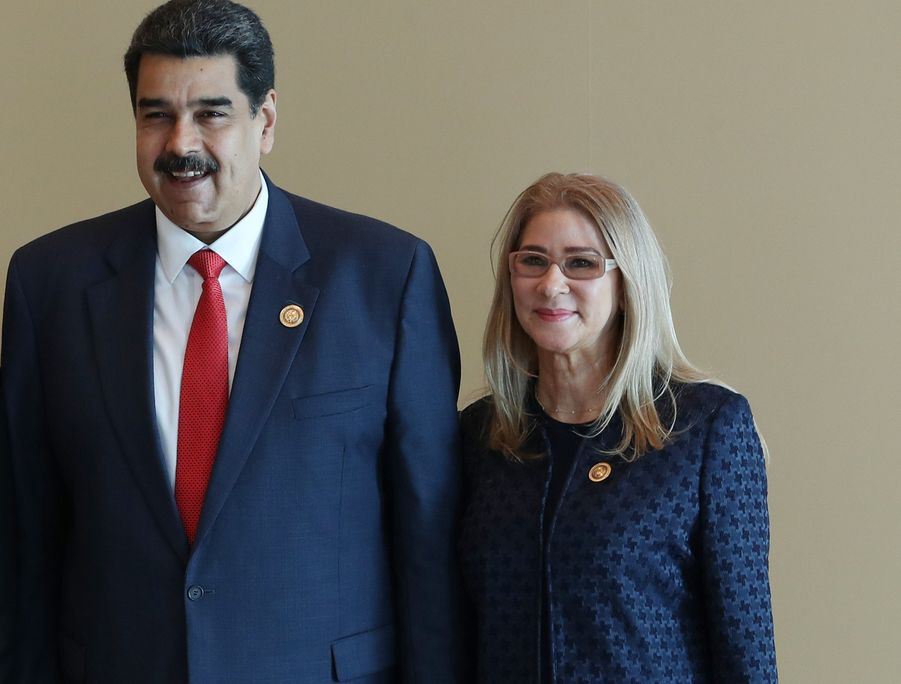One of the US’s oldest and closest allies is currently undergoing a constitutional crisis. Its government is in disarray, led by a head of state whose party has been rejected by voters, and who refuses to allow parliament to function. Coups and crises of transition may pass by relatively unnoticed in the periphery, but France has gone nearly two months without a legitimate government, and US corporate media don’t seem to care to report on it.
Despite corporate media’s supposed dedication to preserving Western democracy, the Washington Post and the New York Times have mostly stayed silent on French President Emmanuel Macron’s refusal to respect the winners of the recent election. Since the left coalition supplied its pick for prime minister on July 23, the Times has reported on the issue twice, once when Macron declared he wouldn’t name a prime minister until after the Olympics (7/23/24), and again nearly seven weeks after the July 7 election (8/23/24). Neither story appeared on the front page.

When the far-right won the first round of French elections, that was front-page news in the New York Times (7/1/24). When the left won the second round, that was much less newsworthy to the Times.
It’s not that the Times didn’t think the French elections were worth reporting on; the paper ran five news articles (6/30/24, 6/30/24, 7/1/24, 7/1/24, 7/7/24), including two on the front page of its print edition, from June 30–July 7 on “France’s high-stakes election” that “could put the country on a new course” (6/30/24). But as it became clear that Macron was not going to name a prime minister, transforming the snap election into a constitutional crisis, the US paper of record seemingly lost interest.
Since July 23, the Post has published two news items from the AP (8/23/24, 8/27/24), plus an opinion piece by European affairs columnist Lee Hockstader (7/24/24), who suggested that France’s best path forward is “a broad alliance of the center”—conveniently omitting that the leftist coalition in fact beat Macron’s centrists in the July 7 election. In what little reporting there is, journalists have been satisfied to stick to Macron’s framing of “stability,” omitting any critique of an executive exploiting holes in the French constitution.
France is in an unprecedented political situation, in which there is no clear governing coalition in the National Assembly. After the snap elections concluded on July 7, the left coalition New Popular Front (NFP) won a plurality of seats in the National Assembly, beating out both Macron’s centrist Ensemble and the far-right National Rally (RN). (While the sitting president’s coalition won the second-most seats, it actually got fewer votes than either the left coalition or the far right.)
These circumstances expose a blind spot in the French constitution, where the president has sole responsibility to name a prime minister, but is not constitutionally obligated to choose someone from the coalition with the most backing. Indeed, there is no deadline for him to choose anyone. In the absence of a new government, Gabriel Attal of Macron’s Renaissance party continues to be prime minister of a caretaker government, despite the voters’ clear rejection of the party.
Despite Macron’s failure to allow the French government to function, US reporting on the subject has remained subdued. Headlines note less the historic impasse in the National Assembly, and Macron’s failure to respect the outcome of the legislative election, and more the confusing or curious nature of the situation.
‘Institutional stability’

When someone in a headline “fumes” (Washington Post, 7/27/24), that’s a signal that you’re not supposed to sympathize with them.
Where US corporate media do comment on Macron’s denial of the election, their framing is neutral or even defensive of the president’s equivocations. Critiques are couched as attacks from the left; one AP piece published in the Washington Post (8/27/24) reports not that Macron is denying an election, but simply that France’s left is fuming:
France’s main left-wing coalition on Tuesday accused President Emmanuel Macron of denying democracy…. Leftist leaders lashed out at Macron, accusing him of endangering French democracy and denying the election results.
Left unchallenged are Macron’s claims that he is simply trying his best to preserve stability, election results be damned:
On Monday, Macron rejected their nominee for prime minister—little-known civil servant Lucie Castets—saying that his decision to refuse a government led by the New Popular Front is aimed at ensuring “institutional stability.”
AP left out of its story the fact that Jean-Luc Mélenchon, the leader of France Unbowed (LFI), the supposedly most objectionable member of the NFP coalition, even offered to accept an NFP government led by Castets, with no LFI members in ministerial roles, to assuage the fears of centrists. This olive branch did not impress AP, which instead relayed Macron’s call for “left-wing leaders to seek cooperation with parties outside their coalition.”
Despite noting that “the left-wing coalition…has insisted that the new prime minister should be from their ranks because it’s the largest group,” the AP piece concluded that “Macron appears more eager to seek a coalition that could include politicians from the center-left to the traditional right,” with no commentary on the right of the electorate to have their voices heard.
‘Scorched-earth politics’

To the New York Times (8/23/24), the idea that a left coalition would try to implement the platform it successfully ran on is a “hard-core stance.”
The New York Times’ reporting (8/23/24) had a similar tone, focusing on the “kafkaesque” situation in which the French government is “intractably stuck.” Times correspondent Catherine Porter chided the NFP, the coalition with the most seats, for its supposed unwillingness to compromise—noting pointedly that “many of the actions the coalition has vowed to champion run counter to Mr. Macron’s philosophy of making France more business-friendly.”
She went on to admit, however, that Castets, the NFP’s choice for prime minister, “has softened her position from its original hard-core stance”—that is, that the coalition would implement the program it ran on—and that “she says she would pursue something more reflective of minority government position.”
However, the Times continued, “the biggest party in her coalition, France Unbowed, has a history of scorched-earth politics that makes the pledge for conciliation feel thin.” In other words, even when the left is willing to make compromises, it is still to blame if such offers aren’t accepted, due to its history of acting in a principled fashion.
The Times seemed to accept an equation between LFI and the RN, which was founded (as the National Front) as an explicitly neo-fascist movement. The paper reported that it was not only a departing minister from Macron’s party, but “many others,” who
consider France Unbowed and its combative leader Jean-Luc Mélenchon, a former Trotskyist, to be as dangerous to France’s democracy as the extreme right.
The anti-immigrant agenda of France’s extreme right, as represented by the RN, includes repealing birthright citizenship in favor of requiring a French parent and implementing strict tests of cultural and lingual assimilation. Mélenchon’s LFI, in contrast, favors medical aid for undocumented migrants and social support for asylum seekers.
Despite the Times’ previous reporting (7/9/24) that LFI is a “hostile-to-capitalism” party, the party’s platform only calls for more state intervention in the market economy, with a critique that is more anti–free market dogma than anti-capitalist, per political scientist Rémi Lefebvre.
Whether supporting intervention in the market is as extreme as supporting ethnic determination of “Frenchness” is left as an exercise for the reader. But according to the French government’s official categorization (Le Parisien, 3/11/24), LFI is categorized simply as “left,” while the RN is indeed categorized as “extreme right.”
Despite the sparse and incomplete coverage by the New York Times and the Washington Post, they must be given credit for covering the story at all. A Nexis review of Fox News, MSNBC, CNN, ABC, CBS and PBS NewsHour reveals next to no reporting on Macron’s refusal to name a prime minister, with no critical reporting whatsoever.
Since July 23, when Castets emerged as the left’s choice, there have been two brief mentions of Macron’s lack of a decision, on CNN Newsroom (7/24/24) and Fox Special Report (8/23/24). Neither program mentioned Castets, much less the exceptional circumstances faced by the French electorate.






